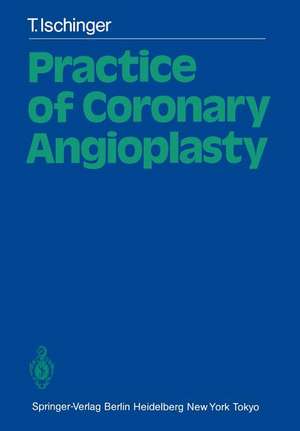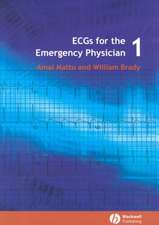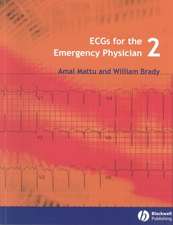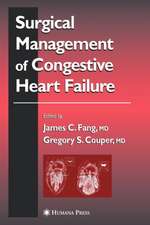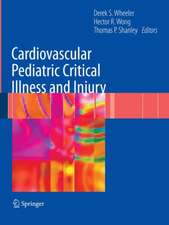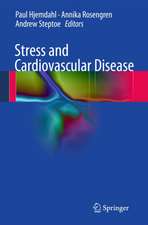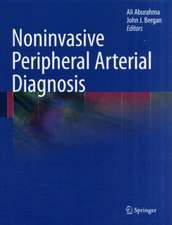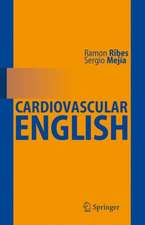Practice of Coronary Angioplasty
Autor Thomas Ischingeren Limba Engleză Paperback – 21 noi 2011
Preț: 720.68 lei
Preț vechi: 758.60 lei
-5% Nou
Puncte Express: 1081
Preț estimativ în valută:
137.95€ • 149.89$ • 115.95£
137.95€ • 149.89$ • 115.95£
Carte tipărită la comandă
Livrare economică 21 aprilie-05 mai
Preluare comenzi: 021 569.72.76
Specificații
ISBN-13: 9783642708176
ISBN-10: 364270817X
Pagini: 340
Ilustrații: XII, 326 p.
Dimensiuni: 170 x 244 x 18 mm
Greutate: 0.54 kg
Ediția:Softcover reprint of the original 1st ed. 1986
Editura: Springer Berlin, Heidelberg
Colecția Springer
Locul publicării:Berlin, Heidelberg, Germany
ISBN-10: 364270817X
Pagini: 340
Ilustrații: XII, 326 p.
Dimensiuni: 170 x 244 x 18 mm
Greutate: 0.54 kg
Ediția:Softcover reprint of the original 1st ed. 1986
Editura: Springer Berlin, Heidelberg
Colecția Springer
Locul publicării:Berlin, Heidelberg, Germany
Public țintă
ResearchDescriere
After 7 years of clinical use, percutaneous transluminal coronary angio plasty (PTCA) has now found worldwide acceptance, and its basic techniques are well standardized. A growing number of invasive cardi ologists are acquainting themselves with the procedure in order to be in a position to offer new therapeutic options to their patients. However, the transition from the diagnostic to the therapeutic intervention is not always easily accomplished. Certain prerequisites concerning technique, the physician, technical equipment, and program organization are necessary for safe and effective performance. The consequences of unsuccessful coronary angioplasty range from waste of time and money to severe complications for the patient; the decision to perform PTCA needs to be based on sound indications and techniques according to the best current scientific evidence. Techniques and technology for coronary angioplasty continue to evolve. Scientific evidence of its short-and long-term value continues to accumulate, and applications of the procedure are still being extended. This volume is obviously no substitute for well-guided hands-on experience with the procedure; it is intended rather to present current policies of patient selection and patient management; to describe standard techniques (femoral and brachial approaches) and potential applications; to point out problem areas and limitations of the proce dure; and to provide tips that may be useful even for the more experienced angioplasty operator.
Cuprins
1. Introduction and Historical Background.- 2. The Mechanism of Transluminal Angioplasty: Pathology of the Arterial Stenoses that Are Most Amenable to PTCA.- 3. Clinical Selection Criteria and Role of Noninvasive Testing for PTCA.- 4. Evaluation of the Coronary Arteriogram in Selection of Patients for Coronary Angioplasty.- 5. Indications and Contraindications for Coronary Angioplasty.- 6. The Cardiac Catheterization Laboratory for Coronary Angioplasty.- 7. Angioplasty Equipment and Supplies: Technical Considerations.- 8. Technique of PTCA — Femoral Approach.- Coronary Angioplasty of Bifurcational Lesions.- Management of Complications of PTCA.- 9. Technique of PTCA by the Brachial Approach: Practical Considerations and Comparison with the Femoral Artery Method.- 10. Assessment of Results of Coronary Angioplasty.- 11. Outcome of Coronary Angioplasty.- Socioeconomic Aspects.- 12. The Problem of Restenosis.- 13. Complications Associated with PTCA.- 14. The Role of the Cardiothoracic Surgeon in PTCA.- 15. Complex Coronary Angioplasty: Multiple-Vessel/Multiple-Lesion Dilatation.- 16. Coronary and/or Saphenous Vein Graft Angioplasty in Patients with Prior Coronary Artery Bypass Graft Surgery.- 17. Coronary Angioplasty for Evolving Myocardial Infarction.- 18. PTCA in Patients with Variant Angina.
